As I’ve said we’re going to be profiling one prominent African American each week of Black History month, some more well know, but maybe details you don’t know, others most of us haven’t heard of. This is one of those well known ones, but you may not know the whole story.
0 Comments
Now I said our series would be about those who you may not know about, but I am also including two figures you may not know the whole story about. This is one of the later.
Nichelle Nichols was born Grace Dell Nichols in a suburb of Chicago, where her father a favor work became Mayor and Chief Magistrate. She hated her name and asked her parents to let her change it. They suggested Nichelle, which they said meant "victorious maiden". Ms. Nichols began her professional career as a singer and dancer in Chicago. She then toured the United States and Canada with the bands of Duke Ellington and Lionel Hampton. She also became a stage actress, and occasionally modeling. In 1967, Nichols, was cast in the role that made her a pop culture icon. Lieutenant Nyota Uhura on Star Trek. She was one of the first Black women featured in a major television series. And fo her to be a bridge officer was unprecedented at that time. The series didn’t stop with her though. There were black actors cast as doctors, brilliant scientists, captains and admirals. She told a great story about being part of Star Trek in an NPR interveiw in 2011. Nichelle was very discouraged after the first season of Star Trek. Her character’s lines kept getting cut, she was getting all kinds of racist mail, and she really dreamed of being a Broadway star and the offers for that started to roll in. She went so far as to draft her resignation letter. But before she turned it in, she went an NAACP fundraiser in Beverly Hills. One of the promoters of the event took her aside and said someone who was a huge fan of her and the show wanted to talk to her. She, of course, espected a typical Trekker, but up to her walked Dr. Martin Luther King, Jr. He warmly greeted her and told her he was a huge fan of hers and the show. She basically thanked him, but said she was just the black lady on the bridge who answered the space phone. He changed her mind about that and quitting saying “Nichelle, whether you like it or not, you have become a symbol, If you leave, they can replace you with a blonde haired white girl, and it will be like you were never there. What you’ve accomplished, for all of us, will only be real if you stay.’ He compared the importance of her staying to marching in civil rights marches, etc. Well she did stay for the series, the movies, the conventions, all of it. But that wasn’t her biggest contribution to space and space exploration. After the TV series ended, she was approached by NASA. NASA realized they had, to say the least, a bit of diversity issue. With exactly zero black astronauts at the time and the same number of women, they knew they had to change that. And they asked her to be part of an effort to recruit both. The program was a huge success. Among those recruited were Dr. Sally Ride, the first American female astronaut, and United States Air Force Colonel Guion Bluford, the first African-American astronaut, as well as Dr. Judith Resnik and Dr. Ronald McNair, who both flew successful missions during the Space Shuttle program before their deaths in the Space Shuttle Challenger disaster on January 28, 1986. Former NASA astronaut Mae Jemison cited Nichols' role of Lieutenant Uhura as her inspiration for becoming an astronaut. Recruits also included Charles Bolden, the former NASA administrator and veteran of four shuttle missions, Frederick D. Gregory, former deputy administrator and a veteran of three shuttle missions and Lori Garver, former deputy administrator. She served from the mid-1980s on the board of governors of the National Space Institute (today's National Space Society), a nonprofit, educational space advocacy organization. So, now you know a bit of why Nichelle wasn’t just an actress, she actually changed the world by being one. And to this day her character is still a vital part of the Star Trek lore with Zoe Saldana playing the character in movies and Celia Rose Gooding playing the character in Star Trek Strange New Worlds, as she says playing Uhura the way Nichelle would have in the 1960's if they had let her. Nichelle Nichols died in 2022. February is Black History Month, so each week we are going to be featuring an influential African American who has transformed our country or world for the better. When I was looking at this, I wanted to focus on men & women who either spoke to me personally as an ally, who are not as well known as they should be, or who had some connection to what we do. Well we found a great one to start with.
Punch the Clock Day is celebrated annually on January 27. It is a day to recognize the ‘punch the clock’ system of clocking in and out of work. Other names for the punch clock include time clock, time recorder, or clock card machine. Most companies have moved away from the original mechanical time clock to computer-based ones that use smart phone or tablet technology. But the concept is still very much applicable, and while we’ll admit that it is one of the more random holidays, it is a great opportunity to talk about one of the most common problems for workers in the US, Wage Theft. But again a quick history on the punch clock.
Historically, hourly wages were calculated based on manual data kept by employers. Managers would write down records of hours worked by employees and determine payroll accordingly. This, however, left a lot of room for miscalculation, workplace disputes, and discrepancies in the money paid and money owed. Employers could write down fewer hours to pay less, and employees could claim they worked more to get paid more, with no secondary source to double-check. Then came the Punch the Clock system. In 1888, Willard Le Grand Bundy, invented a clock where employees could punch in and punch out the hours they worked. An employee would punch their card into the clock, with their exact work hours logged onto it. Employees got paid what they earned, and employers only paid what they owed, a revolutionary change in hourly-wage workplaces. Over time, this system has become even more advanced. Due to technological advancements, wage calculating systems have become digitized and more secure and accurate than ever. Employers can invest in software that tracks employees’ hours on their computers, biometric trackers that store employees’ hand prints and eliminate proxy punching, scan unique barcodes on identification cards, and so much more. And supposedly, the system of tracking and paying employees by the hour was supposed to be fair and efficient. Or at least that’s what was supposed to happen. However, issues with workers’ not getting properly paid are so common, I have a colleague’s office practically on speed dial. My friend and fellow attorney Bob DeRose is a Partner at Barkan Meizlish DeRose Cox, LLP. His practice these days is almost exclusively in wage and hour/overtime issues. The following is their information on this issue and your rights from their website (portion in italics); Holding Employers Accountable for Paying Workers Fairly As wage and hour attorneys, much of our work is done under provisions of the FLSA and the Ohio Minimum Wage Fair Standards Act (“the Ohio Wage Act”). For the majority of hourly workers, the federal law mandates time-and-half for each 15-minute increment of work performed in excess of 40 hours during a 7-day week. Questions over who, exactly, qualifies to earn overtime get complicated and the answers change with updates to U.S. government policies. Anyone with concerns about possible unpaid overtime should consult with an attorney. Beginning in 2020, the Ohio Wage Act requires employers to pay most workers at least $8.70/hour for each hour an employee works. Tipped employees such as wait staff, bartenders and dog walkers can be paid $4.35/hour, but their average hourly pay must still total at least $8.70. Every Ohio resident who earns the minimum wage is assumed to be eligible for overtime, even those who take tips. Employers engage in many illegal and deceptive practices to deny employees the minimum wage and overtime pay. Barkan Meizlish DeRose Cox, LLP, are available to assist workers who fall victim to any of the following problems. Miscategorization of Employment Status In order to avoid minimum wage and overtime laws, unscrupulous employers often miscategorize full-time and part-time employees as independent contractors. The federal government and the State of Ohio enforce rules that determine which workers must be paid at least minimum wage and overtime as employees. At their most basic level, those rules treat a person as an employee if he or she reports regularly to a single worksite, works under the direct supervision of a manager employed by the same organization, and depends on the organization for the equipment and resources needed to complete tasks. Kurt’s note - The Independent Contractor game is very common in workers’ compensation too. If you employer says you are one and pays you with a 1099, it is not the deciding factor. In fact the Ohio Bureau of Workers’ Compensation and the Industrial Commission of Ohio look at a 20 part checklist. So if you get hurt and your boss says you can’t file because they don’t have coverage, you can. If they say you can’t file because you’re not an employee call us or another competent attorney. It’s not like they have a whole load of reasons to lie to you, oh no, they do. Misclassification of Eligible Overtime Hours Misclassification occurs when an employer treats an overtime-eligible worker as ineligible for overtime. The legal terms are “exempt” and “nonexempt,” with earning a high salary, supervising co-workers, and/or performing professional duties as evidence of exempt status. Employers sometimes misreport earnings and give a person a professional-sounding job title in order to unlawfully deny earned overtime pay. Off-the-Clock Work Employers cannot require overtime-eligible or hourly employees to do uncompensated work. This means that managers cannot insist that tasks be completed before an employee clocks in or after an employee clocks out. It also means that mandatory unpaid overtime, clocking employees out without their knowledge, and withholding overtime pay as a punishment are illegal. Illegal Deductions of Employee Wages Employers are allowed to make certain deductions from workers’ wages for uniforms, special equipment, and employee-caused losses such as money drawer shortages and damage to company property. However, deducting wages for work performed as a punishment for a policy violation is not allowed. Nor can an employer deduct so much from an employee’s pay that the worker ends up earning less than the minimum wage. Illegal Rounding of Employee Hours Rules put in place to ensure employees get paid for each hour they work require employers to record work time in 15-minute increments. Periods of 1-7 minutes can be rounded down to the previous quarter-hour; periods of 8-14 minutes must be rounded up. Some employers cheat workers by always rounding down. Other employers refuse to record workers’ time in increments shorter than half hours or full hours. Misreporting/Miscalculating Employee Break Time Employees cannot be required to work during unpaid breaks. Also, employers cannot require workers to clock out for breaks that are shorter than 20 minutes. What this means in practical terms is that workers cannot have their pay docked for taking bathroom or other short breaks. Withholding Pay for Employee Travel Time Traveling for work—but not commuting to work daily—is what the law and lawyers call “compensable.” The time spent driving to call on clients must be paid time. So must the day spent flying from headquarters to a business meeting. Overtime accrues while traveling for work, as well. Poor or Fraudulent Record-keeping of Employee Hours and Wages Laws like the FLSA require employers to keep accurate, detailed, and reviewable records of hours worked and wages paid. A worker cannot be held responsible for keeping track of wage and hour details. Employers who misreport worktime and pay cheat workers even when the errors are not made intentionally. A Unpaid Wage Attorney Who Fights for Workers Employees have legal rights to demand fair wages and earned overtime. The laws and regulations that enforce these employee rights, however, also impose tight statutes of limitations. As soon as you notice that your employer is engaging in illegal pay practices, contact the experienced wage and hour attorneys at Barkan Meizlish DeRose Cox, LLP. In addition to explaining your legal options, our Ohio employee rights lawyers can help you identify and obtain essential evidence. Our lawyers may also be able to identify other workers the employer has underpaid and exploited and form a group of plaintiffs that has more influence than one individual. Can I Afford an Attorney? Our wage and hour attorneys understand that when it comes to wage theft, it can feel like an impossible task to go up against your employer. With the cost of attorney fees often outweighing the lost wages in question, many affected by wage theft choose not to pursue legal action. Fortunately, 29 U.S.C.sec 216(b) sets guidelines for fee-shifting. This practice gives employees who successfully bring claims of FLSA violations against their employers the opportunity to have the cost of their attorney’s fees shifted and become their employer’s responsibility. This means that your employer pays your attorney and not you. So, ever had someone try to do this to you or someone you care about? Contact us and we can connect you with Bob & his team to help take care of this. Call us at 419-244-7885. And don’t let an employer take away your workers’ compensation rights by calling you an independent contractor and not filing. Call us and we can look at the facts with you and give you an unbiased take on whether you really are an employee or not. International Sweatpants Day is marked on January 21 every year, and I’m going to celebrate it by wearing my sweatpants that day. First let me tell you about the history of those comfy pants and then why I care .
Until I researched this post, I didn’t know this, but the first pair of sweatpants was introduced in the 1920s by Émile Camuset, the founder of Le Coq Sportif. The first sweatpants to be made were simple knitted gray jersey pants that allowed athletes to stretch and run comfortably. Since then, traditionally, sweatpants have been ash-gray in color, but over the recent years, companies like Nike, Champion, Under Armor & others have put considerable effort into making them more attractive while at the same remaining just as comfortable as the original ones. Despite the fact sweatpants were made for exercise, people wear them for the exact opposite reason, to relax! And I will admit, when I come into the office alone to get some work done, it’s going to be in jeans or sweats. Thanks to virtual hearings being the norm these days, I can get away with a bunch more casual clothes than any time in my career. But again, by now, you have to be saying, again, Kurt why this blog. Well I want to tell you a story, it’s about my wife’s former church and a person who attended there. But it also applies to our clients. In case you don’t know my wife is a United Methodist Pastor. She currently serves as a Spiritual Care Coordinator or some call them Chaplains for Hospice. But when we first met she was serving a small, but growing church in Findlay, just under an hour south of Toledo. At the time, she was sent there to turn the church around. It, like most mainline churches had been declining for years. But she was sent it to turn the tide and she did at that church and her next one as well. Methodist pastors usually move around a lot, but because of me, she was to stay within an hour or so of Toledo. Thanks to the good work she and the church were doing, she started to attract people who didn’t have a church home. One of them we’ll call Roger. Roger came to church every week for a time, wearing sweatpants, would stay for the small group, Sunday school class, and then leave every week. Finally, I got the courage to ask him why he didn’t stay. He explained that he didn’t think it was right for him to come into the service in sweatpants and right now, that’s all he had. This was not a church where everyone dressed up. Sure there were older members of the congregation in fancier clothes, but lots of people in khakis and the like. I offered to get into my sweats, as the pastor’s new spouse who was generally well liked and sit with him. I told him no one would say a word and he’d see we were OK with that. But he never did. Not too many weeks after he died. And we found out a bit about him that we never knew. We knew he had battled some dark times, and struggled with substance abuse. But what we never knew, until his family, who had just started to reconnect with him before he died, told us was Roger was not a poor, addicted man all of his life. Before he had been a successful CEO, who yes owned fancy suits and lived in a large home. But things crumbled and he literally lost everything, including the clothes on his back. So at the end, he truly only had sweatpants. He died never feeling like he could be a part of our church fully. And I can tell you that truly opened my eyes. If anyone needed that church fully it was him. I can tell you that Cheri has served or we have attended four churches since then. And I make it a point every so often to dress in sweats, jeans, a t-shirt or the like. Why? Because I want the other Rogers of the world to feel at home. We spend all day around here helping people who are in dark places financially, and we don’t judge you by what clothes you show up in. I have had clients who were housing insecure or flat out homeless. I have had people shake my hand with greasy, dirty hands, wearing dirty coveralls, etc. And a few clients who showed up for any appointment in sharp suits. Just know, we treat you all the same around here. Because you deserve that. When clients talk to me at the beginning calling me Mr. Young or Sir, I quickly say thank you for the respect. But I am Kurt, and I want you to get used to a guy with a suit being on your side. So this Sunday, I’ll be in my sweats for church. And I’m pretty sure my pastor and my wife will be OK with that. For the Tenth Year in a Row Kurt Young has been named an Ohio Super Lawyer in Workers' Compensation Law. In order to be named you have to be nominated, be vetted by a research team, and rank as one of the top 5% of the attorneys in your area of practice in your state and area of practice based on survey of past winners and other notable attorneys. To Qualify you must have over 10 years in practice and be nominated.
From 2005 to 2007 Kurt was named an Ohio Rising Star Super Lawyer, which is for the 2.5% of attorneys in an area of practice under the age of 40. Kurt sadly "aged out" of that category in 2008. Congrats again boss, and as we joke with you every year, no you can't wear a cape to work. Our office will close Monday January 15, 2024. Today, I want to talk about why Martin Luther King Day is so important to celebrate. We know it's a day off for many, including all government agencies we deal with. But it's so much more than that. This day is all about honoring the incredible legacy of Dr. Martin Luther King Jr. and the ongoing fight for equality and justice.
First off, Martin Luther King Day is a time to remember and reflect on the life and work of Dr. King. He was a powerful voice in the civil rights movement, advocating for nonviolent activism and equality for all people. His tireless efforts paved the way for significant changes in our society, and his words continue to inspire generations. Moreover, celebrating this day is a way to recognize the progress that has been made in the fight for civil rights and social justice. It's a reminder that change is possible, and that each of us has a role to play in creating a more inclusive and equitable world. Additionally, Martin Luther King Day serves as a call to action. It's time to consider how we can contribute to Dr. King's vision of a more just and harmonious society. Whether it's through volunteering, advocating for policy changes, or simply having meaningful conversations, each of us can make a difference. Finally, this day is a chance to celebrate diversity and unity. Dr. King's message of love, compassion, and understanding is as relevant today as it was during the civil rights era. By coming together to honor his legacy, we reaffirm our commitment to building a society where everyone is valued and respected. So, as we enjoy the day off, let's also take a moment to appreciate the significance of Martin Luther King Day. It's a time to remember, reflect, and recommit ourselves to the ongoing pursuit of equality and justice for all. Fifty-six years ago this week, our boss, Kurt Young, was born. Kurt's parents, James Young and Mary Anne (formerly Schultz), were high school sweethearts. His dad was supposed to go to college and play football for the University of Michigan, but due to a car accident and on-field injuries, he couldn't pass his scholarship physical. Instead, he joined the US Navy and served for over 20 years. Because of his dad's service, Kurt lived everywhere but Toledo for his first 25 years of life. He followed his dad from Newport, Rhode Island, to Detroit, Michigan, to San Juan, Puerto Rico, to Norfolk, Virginia, and finally to Akron, Ohio. Kurt finished high school and college in Akron, then moved to Cleveland for law school and his first year of practice. Finally, he returned to the Toledo area. In 1997, Kurt married Cheri, and his adventure as a pastor's spouse began. Cheri was helping with a church turnaround or revitalization in Findlay, Ohio, when they married. Kurt was part of a team that started a cutting-edge worship service at that church. He then helped Cheri revitalize another church and start one from scratch. Kurt has undergone extensive training in worship planning, church marketing, and starting new churches. He is still actively involved in his church today. Kurt's favorite job, outside of the firm, is being a father. He and Cheri have a daughter, Rebecca, and a son, James. They raised them in Toledo's Old West End and have all been active in that community and non-profit organizations advocating for the LGBTQ community, combating youth homelessness, and promoting voting Kurt holds an undergraduate degree with a certification in campaign and interest group management. He has worked as an intern on Congressional campaigns, in a Congressional District Office, and in the Mayor of Akron's office, assisting with intergovernmental lobbying. He has been actively involved in campaigns since the age of 12, holding various positions such as volunteer coordinator, targeting director, general counsel, and campaign manager. Additionally, he was appointed to a term on the Toledo City Council. Kurt has been actively engaged in Democratic Politics across Summit, Cuyahoga, Wood, and Lucas Counties. He has served on the Central Committees of Cuyahoga and Lucas County, as well as on the Executive Committees of Summit, Wood, and Lucas Counties, and the Ohio Democratic Party. He is a strong advocate for programs benefiting young political operatives, having held positions such as President of the University of Akron College Dems and a Young Dem in Summit, Cuyahoga, and Wood Counties. In recognition of his dedication, he was bestowed the title of Honorary University of Toledo College Democrat for Life in 2012, as well as an Honorary Lucas County Young Democrat. In 2022, the Lucas County Young Democrats renamed the award to the "Kurt Forever Young Honorary Lucas County Young Dem for Life." Moreover, he served as the Parliamentarian of the Lucas County Democratic Central and Executive Committees and later became the Chair of the Lucas County Democratic Party. After the 2000 election debacle in Florida, Kurt helped found the Lucas County Democratic Promote the Vote Team. He trained and deployed hundreds of attorneys and other volunteers as election observers, protecting the voting rights of thousands of voters. He has been named by the County and Ohio Democratic Party as the Board of Elections, also known as the "Super Observer," in over a dozen counties. For almost a decade, Kurt and our team have hosted the Toledo Area Jobs with Justice/Interfaith Worker Justice Ride to the Polls effort, providing thousands of Toledo area voters with free rides to the polls. In 2019, Kurt was appointed as one of the four members of the Lucas County Board of Elections. This year, he became the first Democrat to be reappointed to a second term in decades. He is also a member of the Ohio Association of Election Officials. Kurt has been an active attorney since November 1993. He is licensed to practice in Ohio, the Federal District Court for the Northern District of Ohio, and the Supreme Court of the United States. Twenty years ago this March, Kurt started the Law Offices of Kurt M. Young, LLC. With the help of added attorneys, paralegals, and secretaries, they have assisted thousands of working people in obtaining the legal help they need. So, Happy Birthday, Kurt! As this year ends and the New Year dawns upon us, we would like to extend our heartfelt greetings and best wishes to all our valued clients, vendors and partners in other law firms, and doctors and their staffs who make what we do possible. We hope this message finds you in good health and high spirits.
Despite all of the challenges you and we have faced in the past year, we have remained steadfast in our commitment to being a voice for those who might otherwise be voiceless, by providing quality legal services to those who couldn’t otherwise afford an attorney, and it truly has been a good year despite the challenges we’ve all faced in 2023. 2023 was a year that tested our resilience and adaptability. Despite the uncertainties, we stood together as a firm and with you and thanks to the cooperation of those doctors and their teams, our vendors, and unwavering dedication and skill of our team, we accomplished some amazing things. This year we helped out nearly 500 people who were looking for assistance with some kind of legal need. Some hired us as clients, others we referred to other highly skilled and qualified law firms and agencies to help them get where they needed to go. Thanks to the dedication, skill and commitment of our team, we attended over 268 administrative hearings for our clients at the Industrial Commission of Ohio, winning the vast majority of them. Including bringing a nearly twelve year fight for one client to successful conclusion with out client being granted lifetime Permanent Total Disability Benefits. Working with our partners at the Law Offices of Rusell Gerney we were able to help hundreds clients with cases before a number of Common Pleas Courts, and won a huge fight against a major local car manufacturer at the Court of Appeals. Russ also successful help dozens upon dozens of clients with Unemployment, Personal Injury and Social Security Disability cases. And these victories paid off. We were successful in getting the Workers’ Compensation system of the State of Ohio, at a time when it becomes harder and harder to prevail each day, to pay our clients and their doctors millions and millions of dollars in Medical Treatment and Money also known as Indemnity Benefits. One of our goals to is to provide a place to let men and women with talents live out their calling to help working people. And while we will miss them, we saw two of our staff reach retirement and go off to enjoy a well earned rest. In addition, Kurt serves on the Lucas County Board of Elections and thanks to their team and Kurt and his fellow board members Lucas County was able to hold an unprecedented five elections this year, despite many obstacles including one that violated Federal and State laws due to it’s timing. With the invaluable support and trust you placed in us, we overcame obstacles and thrived, which is a testament to the strong relationships we've built. As we step into the New Year, we are committed to further expanding our ability to help you. Our team of experienced attorneys will continue to stay updated with the latest legal developments, ensuring that we provide you with the most accurate and effective counsel. Rest assured, we will remain at the forefront of legal trends, enabling us to deliver unparalleled service and guidance. In 2024, we are excited to broaden our reach and deepen our impact within the legal landscape. We are going to be undertaking a major upgrade in our firm’s technology that will allow us take care of you even faster and more efficiently, and keep you update on the progress of your case via text messages, email and more. In addition, working with our partners, we are going to launch a YouTube channel so we can educate the public on issues in all of our areas of practice. It has always been a key value of ours to educate our clients on the legal system and on your cases to be a partner with us in making the tough decisions on your legal need. And we hope these videos will serve as a valuable resource to our clients and beyond, empowering people to make informed decisions and navigate the complexities of the legal world. At our law firm, excellence is not just a goal; it is a way of life. We are steadfast in our commitment to providing you with exceptional legal services tailored to your unique needs. Our team of talented staff combines their expertise with a deep understanding of your individual circumstances, ensuring that you receive personalized attention and that together we achieve the best possible outcomes. As we say goodbye to 2023 and embrace the opportunities of the future, we extend our warmest New Year's greetings to you. We are grateful for the trust you have placed in us and look forward to continuing our partnership in the coming year. May 2024 be a year filled with peace, prosperity, growth, and success for all of us. Remember, we are here to support you every step of the way. In honor of the New Year we will be . On December 29, 1970, President Richard M. Nixon signed into law the Occupational Safety and Health Act, and the Occupational Safety and Health Administration (OSHA) was born.
OSHA’s mission is to "assure safe and healthy working conditions for working men and women by setting and enforcing standards and by providing training, outreach, education, and assistance." The Bureau of Labor Standards of the Department of Labor had originally worked on some work safety issues since its creation in 1922. Economic boom and associated labor turnover during World War II worsened work safety in nearly all areas of the United States economy, worsened work safety in nearly all areas of the United States economy, but after 1945 accidents declined for a time. New influence and power for labor unions played an increasingly important role in worker safety post-World War II. But in the 1960s, increasing economic expansion again led to rising injury rates, and the resulting political pressures meant a new agency needed to be created. Understanding the OSH Act: The OSH Act, enacted in 1970, was a landmark legislation aimed at safeguarding the health and well-being of American workers. Its primary purpose was to establish comprehensive regulations for workplace safety and health standards across various industries. Since its inception, the OSH Act has empowered workers by granting them the right to a safe working environment free from recognized hazards. The Role of OSHA: OSHA, an agency operating under the U.S. Department of Labor, is tasked with enforcing the regulations outlined in the OSH Act. Their mission is to ensure safe and healthy working conditions for all employees. OSHA achieves this through inspections, investigations, and the establishment of safety standards. Injured workers can rely on OSHA to hold employers accountable for any violations that compromise workplace safety. By filing complaints with OSHA, injured workers can initiate investigations and prompt corrective actions. NIOSH's Contribution to Workplace Safety: Working in tandem with OSHA, the National Institute for Occupational Safety and Health (NIOSH) focuses on research, education, and prevention strategies to reduce workplace hazards. NIOSH conducts scientific studies, develops guidelines, and provides recommendations to improve workplace safety. Their expertise helps inform OSHA's regulatory decisions and ensures that worker protection measures are based on the best available evidence. How OSHA and NIOSH Benefit Injured Workers: For injured workers, OSHA and NIOSH serve as vital resources throughout their journey towards justice and compensation. OSHA's enforcement actions can result in penalties and corrective measures, holding employers accountable for their negligence. Injured workers can seek support from OSHA in investigating incidents, addressing hazards, and understanding their rights under the OSH Act. Additionally, NIOSH's research and recommendations contribute to the development of safer work practices, reducing the risk of future accidents and injuries. OSH Act coverage: The OSH Act covers most private-sector employers and their workers, in addition to some public-sector employers and workers in the 50 states and certain territories and jurisdictions under federal authority. Those jurisdictions include the District of Columbia, Puerto Rico, the Virgin Islands, American Samoa, Guam, Northern Mariana Islands, Wake Island, Johnston Island, and the Outer Continental Shelf Lands as defined in the Outer Continental Shelf Lands Act. State plans are OSHA-approved job safety and health programs operated by individual states instead of federal OSHA. Federal OSHA approves and monitors all state plans and provides as much as fifty percent of the funding for each program. State-run safety and health programs are required to be at least as effective as the federal OSHA program. Sadly Ohio isn’t one of the 22 states and territories that have such a program. Rights and responsibilities under OSH Act law Employers have the responsibility to provide a safe workplace. By law, employers must provide their workers with a workplace that does not have serious hazards, and they must follow all OSH Act safety and health standards. Employers are obligated to identify and rectify safety and health problems. The OSH Act further requires that employers must first attempt to eliminate or reduce hazards by making feasible changes in working conditions, rather than relying solely on personal protective equipment such as masks, gloves, or earplugs. Examples of effective ways to eliminate or reduce risks include switching to safer chemicals, enclosing processes to trap harmful fumes, or using ventilation systems to clean the air. Employers must also: Inform workers about chemical hazards through training, labels, alarms, color-coded systems, chemical information sheets, and other relevant methods.. Provide safety training to workers in a language and vocabulary they can understand. Keep accurate records of work-related injuries and illnesses. Perform tests in the workplace, such as air sampling, required by some OSH Act standards. Provide the required personal protective equipment at no cost to workers, as employers must pay for most types of required personal protective equipment. Provide hearing exams or other medical tests when required by OSH Act standards. Post OSHA citations and annually post injury and illness summary data where workers can see them. Notify OSHA within eight hours of a workplace fatality and within 24 hours of all work-related inpatient hospitalizations or injuries where sufficient time missed from work has occurred. Workers have the right to: Working conditions that do not pose a risk of serious harm. File a confidential complaint with OSHA to have their workplace inspected.[19] Receive information and training about hazards, methods to prevent harm, and the OSH Act standards that apply to their workplace. The training must be conducted in a language and vocabulary that workers can understand. Receive copies of records of work-related injuries and illnesses that occur in their workplace. Receive copies of the results from tests and monitoring conducted to identify and measure hazards in their workplace. Receive copies of their workplace medical records. Participate in an OSHA inspection and speak in private with the inspector. File a complaint with OSHA if they have faced retaliation or discrimination from their employer as a result of requesting an inspection or exercising any of their other rights under the OSH Act. File a complaint if punished or retaliated against for acting as a 'whistleblower' under the 21 additional federal laws for which OSHA has jurisdiction. Temporary workers must be treated like permanent employees. Staffing agencies and host employers share joint accountability for temporary workers. Both entities are therefore obligated to comply with workplace health and safety requirements and ensure worker safety and health. OSHA could hold both the host and temporary employers responsible for any violations. Whistleblower Protection Program: OSHA’s Whistleblower Protection Program (WPP) enforces the whistleblower provisions of the Occupational Safety and Health Act and 24 other statutes protecting workers who report violations of various airline, commercial motor carrier, consumer product, environmental, financial reform, food safety, health care reform, nuclear, pipeline, public transportation agency, maritime and securities laws. How Well Has OSHA Worked: A 2012 study in Science found that OSHA's random workplace safety inspections caused a "9.4% decline in injury rates" and a "26% reduction in injury cost" for the inspected firms. The study found "no evidence that these improvements came at the expense of employment, sales, credit ratings, or firm survival” A 2020 study in the American Economic Review found that the decision by the Obama administration to issue press releases that named and shamed facilities that violated OSHA safety and health regulations led other facilities to increase their compliance and to experience fewer workplace injuries. The study estimated that each press release had the same effect on compliance as 210 inspections. Now Ohio has its own workplace safety regulations. But unlike OSHA regulations they are not researched by anything like NIOSH and are nowhere as often amended. In fact, colleagues who work with both sets of regulations say there are some which are incompatible with each other. Is OSHA perfect, no, it’s underfunded, therefore not sufficiently staffed, and there are not enough enforcement penalties. But it has made a difference. And every year, those of us who advocate for workers celebrate two days of the year in regard to this, the day it was signed, and in March when the act first took effect. And locally, that is when we celebrate Workers’ Memorial Day. So we can remember the dead and fight like hell for the living. Has someone you love been saved by these safety measures? We have seen far too many lives cut short or the quality of life destroyed by work injuries. So I personally pray that one day, thanks to OSHA & NIOSH, we’re no longer needed. But for now, we are here to help those hurt on the job in Ohio. Call us at 419-244-7885. We have over three decades of experience helping people hurt on the job, and offer a no cost, no obligation initial consultation. |
Archives
January 2024
Categories |
Areas of Practice |
Our Office |
Contact Information
© COPYRIGHT 2024. ALL RIGHTS RESERVED.
|

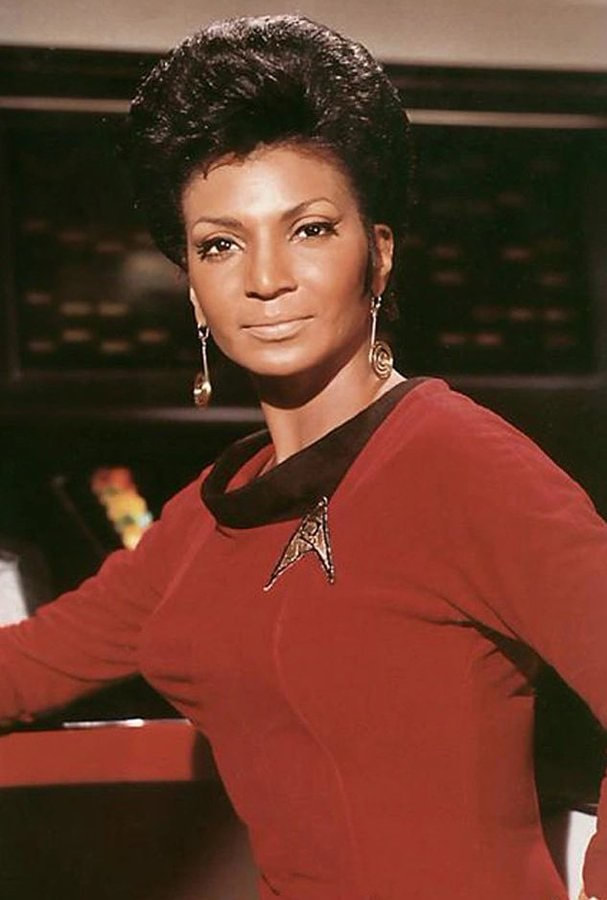
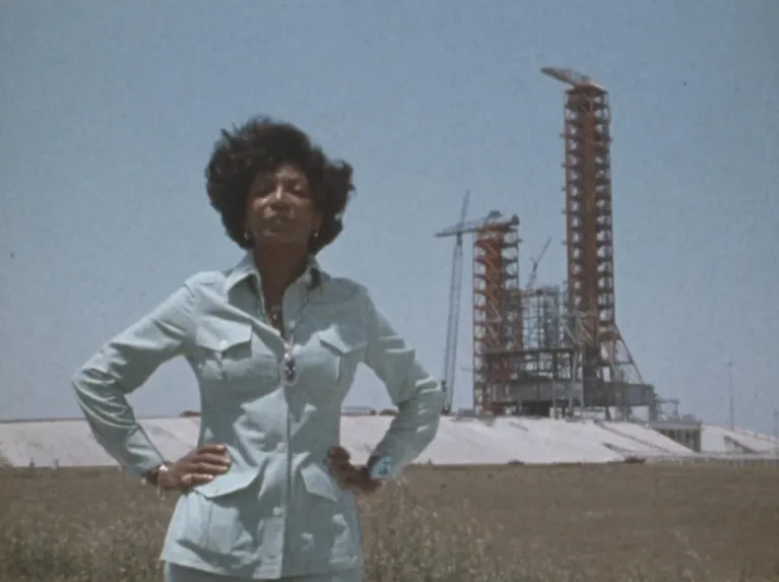
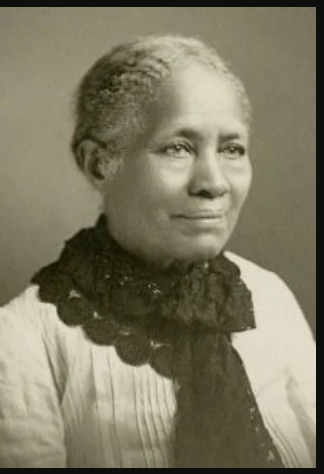


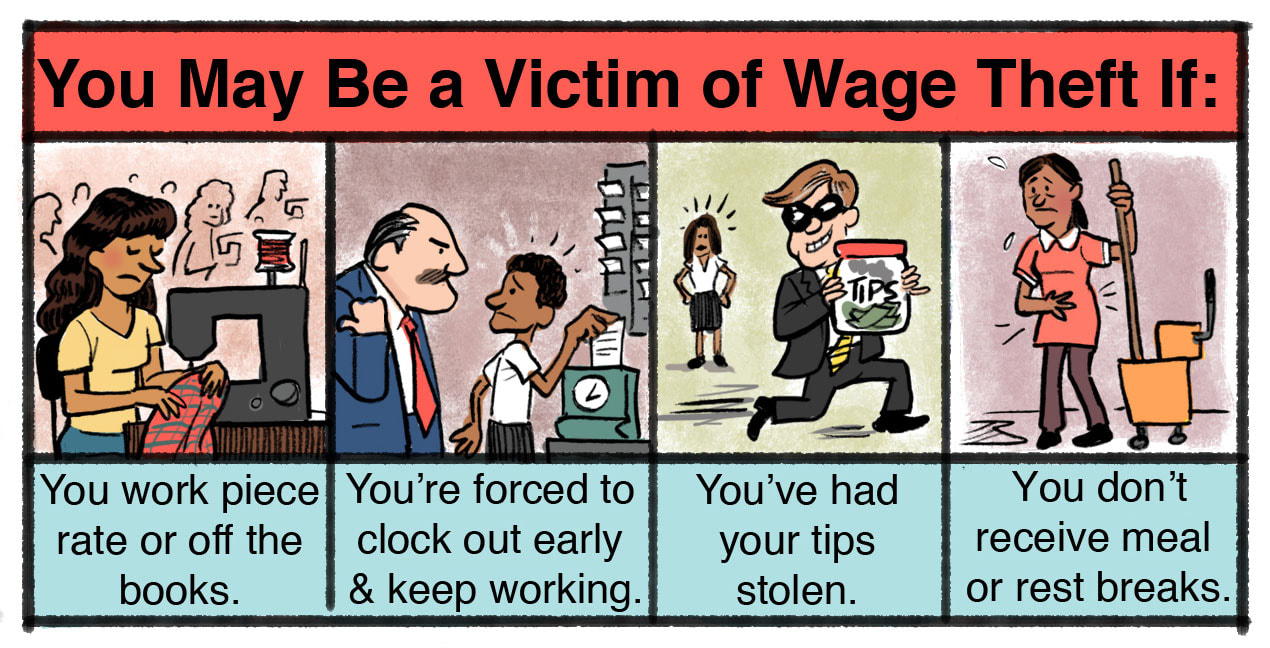
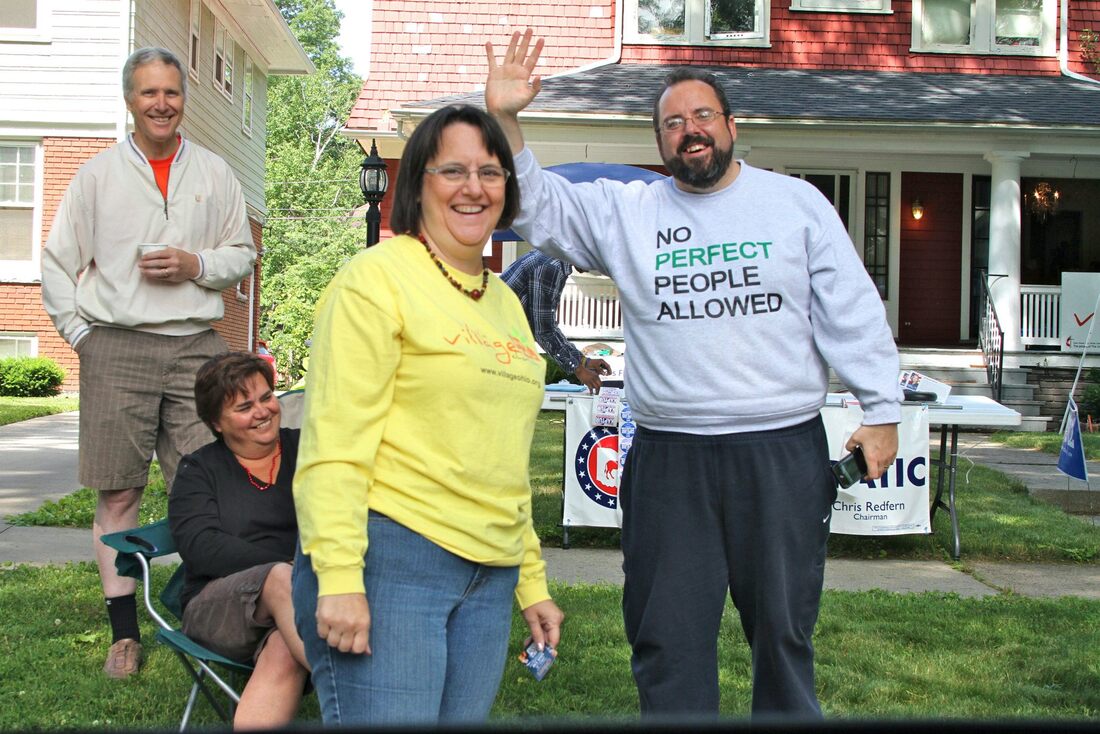
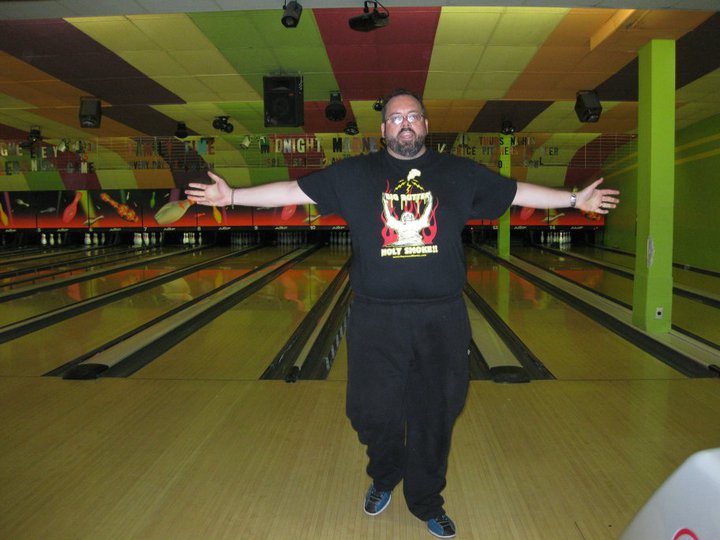


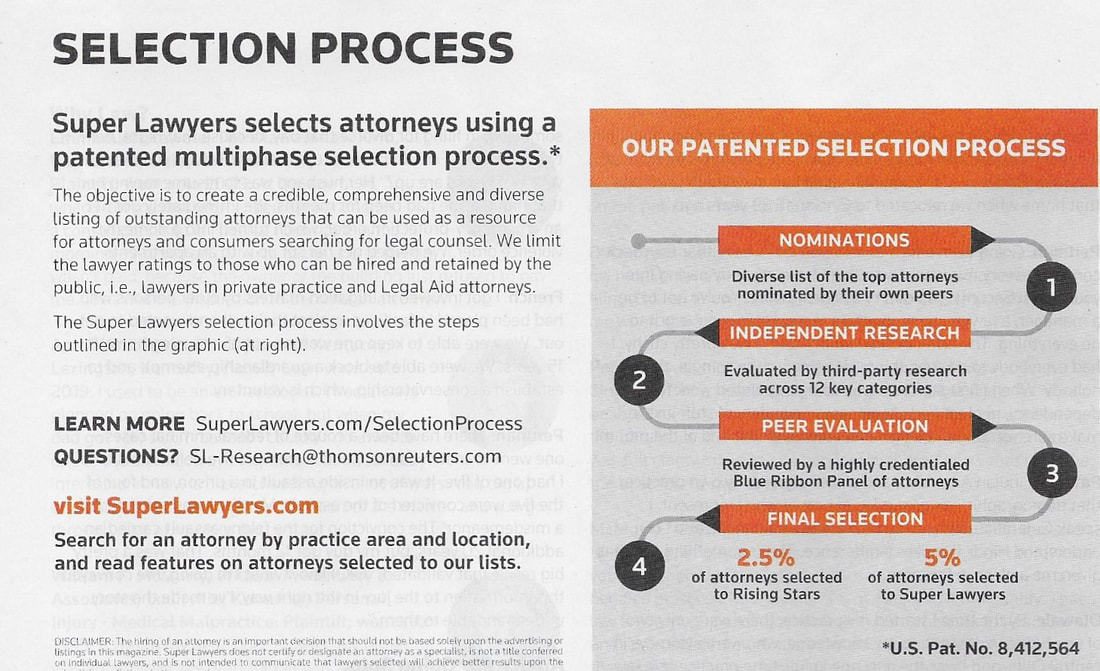
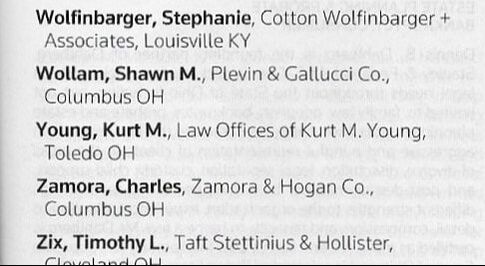
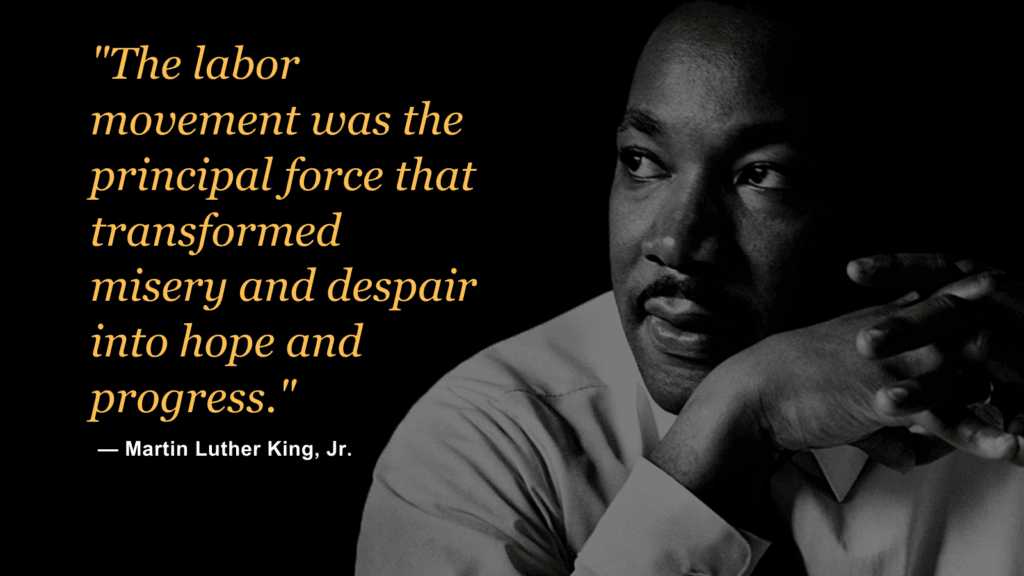
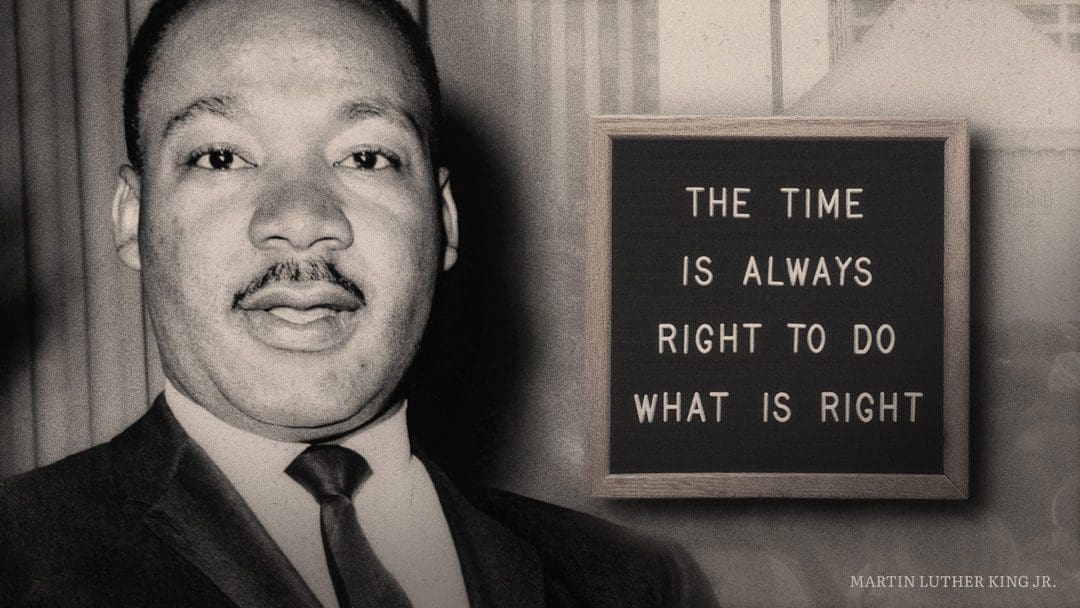
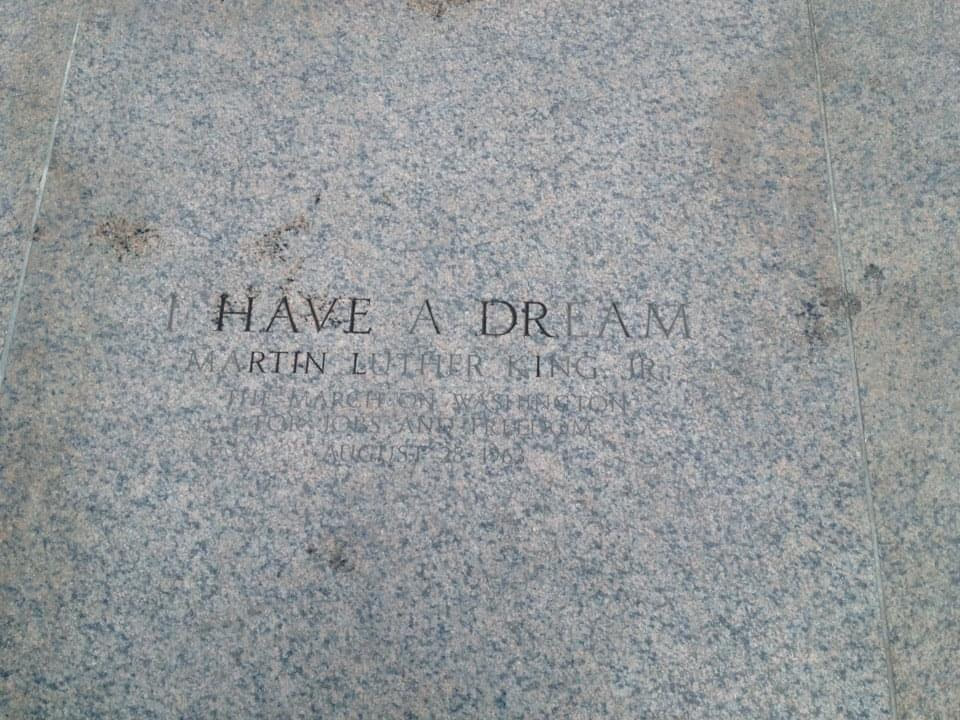


 RSS Feed
RSS Feed